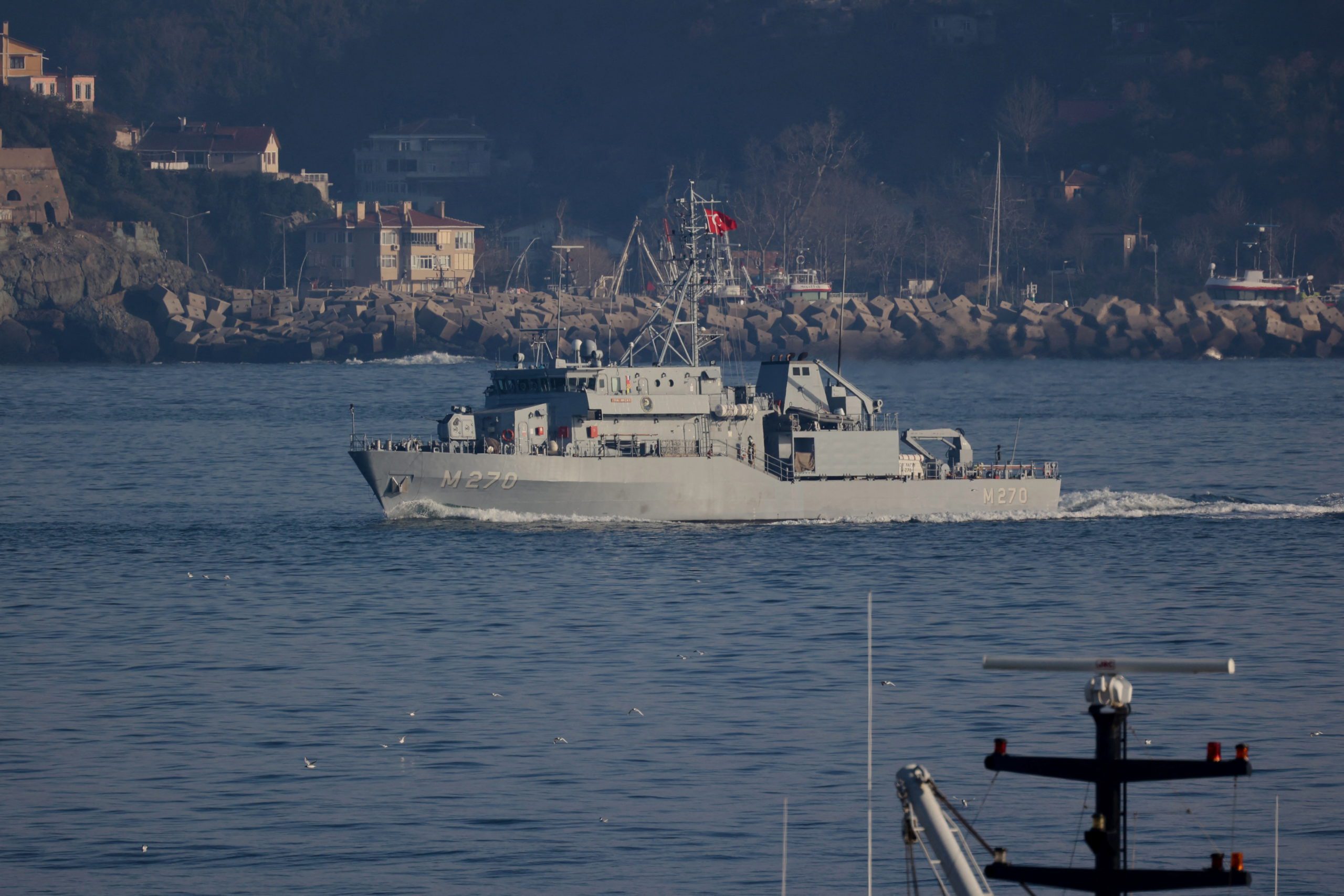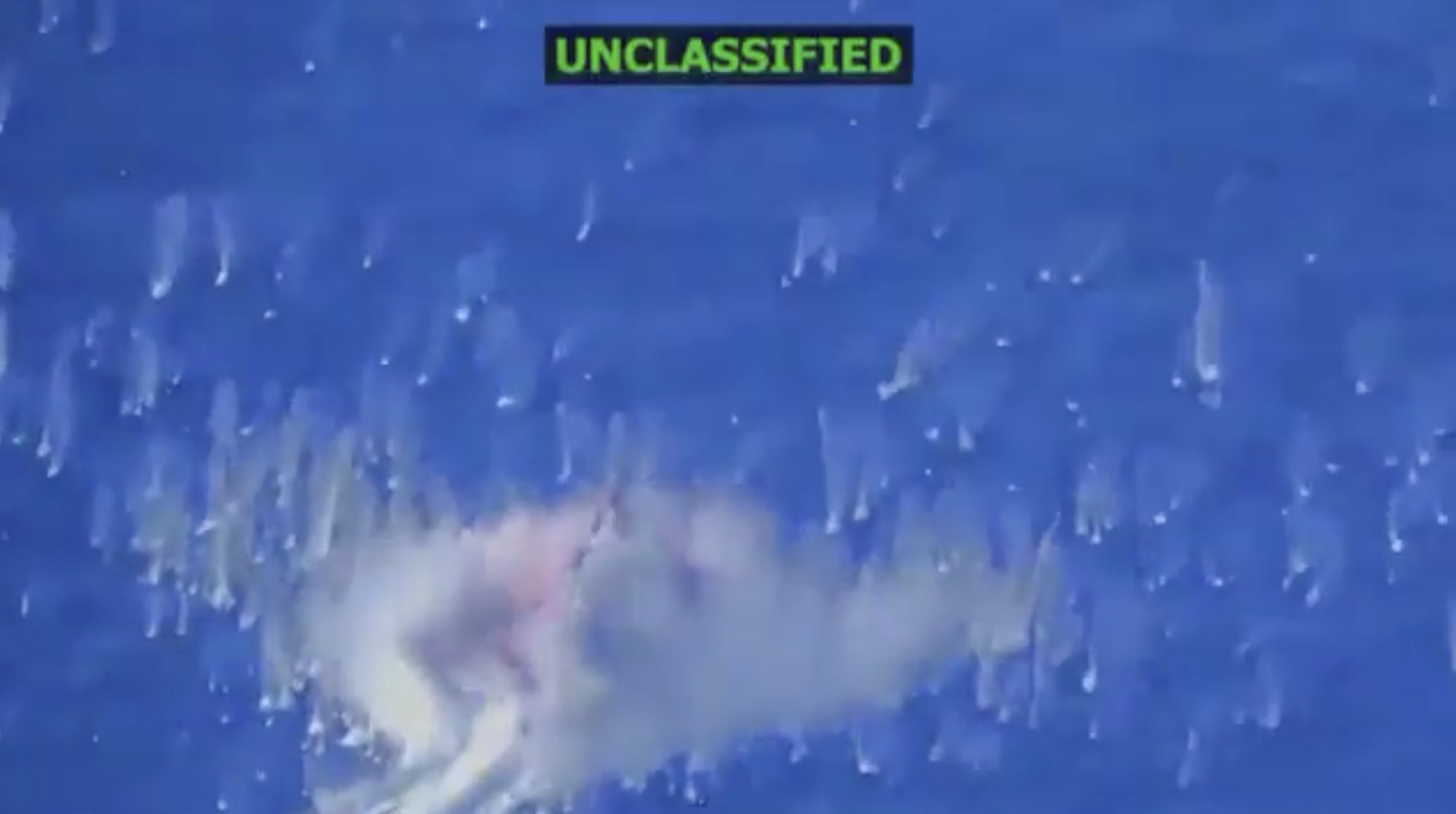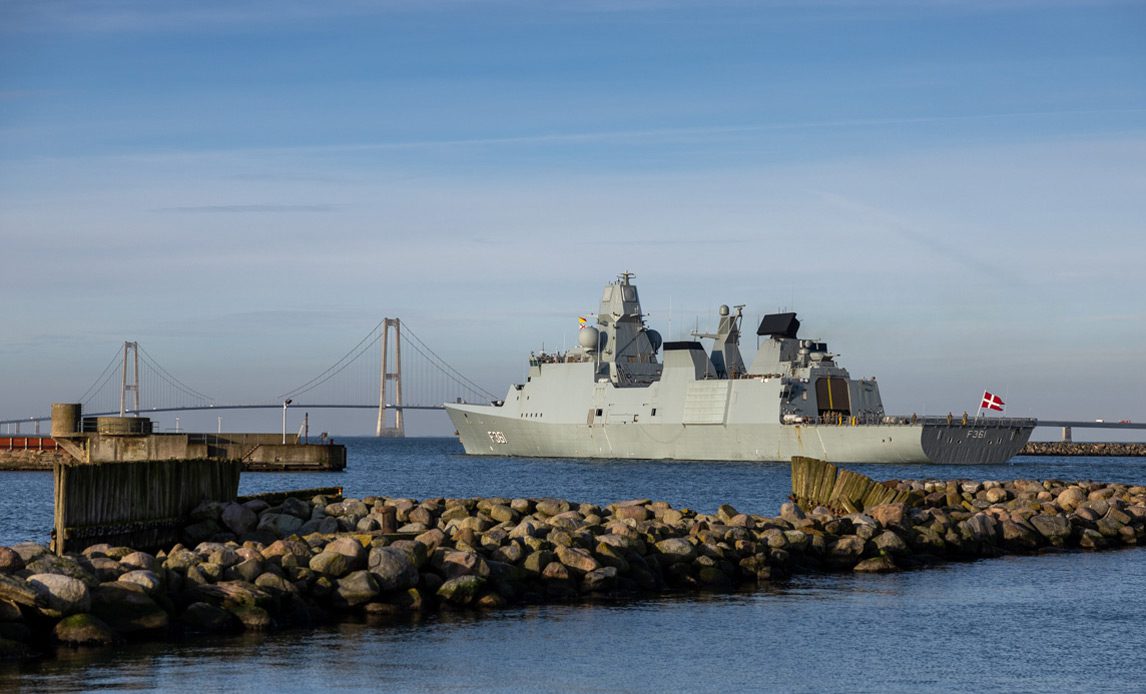By Patrick Sykes
Jan 24, 2025 (Bloomberg) –When Turkey’s navy welcomed two new ships to its fleet this month, officials left no doubt about the scale of their mission – or its geopolitical ambition.
The 3,000-ton frigates “will represent our nation’s power and determination in the world’s seas,” Haluk Gorgun, head of the presidency’s Secretariat of Defense Industries, said at a ceremony to mark the launch. “Turkey is taking firm steps to become a country that’s strong at sea, with deterrence in the field and a voice at the table.”
The newbuilds are the latest product of a naval expansion drive that will give Ankara added clout into and beyond the Mediterranean, Aegean and Black Seas. The aim is also to diversifying a booming domestic defense industry that’s better known for its flying drones.
It’s a long-term bet that could benefit from a growing conflict over maritime trade routes, as Iran-backed Houthi rebels threaten merchant shipping off the coast of Yemen, while Ukraine and Russia trade blows in the Black Sea and NATO ramps up surveillance to counter suspected sabotage of underwater cables.
Still to come are another 29 ships under construction in Turkish yards, including the country’s first domestically produced submarines, destroyers and an aircraft carrier. Those would expand the overall fleet to 209 vessels, according to Bloomberg calculations based on the latest breakdown by the International Institute for Strategic Studies.
“It not only shifts the regional balance of power but also marks Turkey’s emergence as a blue-water navy capable of projecting force abroad while maintaining dominance in strategically vital, geographically complex regions like the Aegean Sea,” said Suha Cubukcuoglu, senior researcher at Abu Dhabi-based Trends Research & Advisory and the author of a book on Ankara’s maritime strategy.
The assertive posture is rooted in the “Blue Homeland” doctrine developed by Turkish naval officers in 2006 and later adopted by the government, which seeks to assert control over more of the waters surrounding the country.
It’s led to multiple clashes with Greece and Cyprus in the Aegean and East Mediterranean over territory and undersea energy resources. Tensions have eased since a ship collision in 2020 almost pushed the neighbors to conflict, but neither side has stepped back from claims on the scope of their exclusive economic zone. Athens has also sought to bolster its navy, placing a $3.5 billion order for French frigates in 2021.
Amid competing claims over the water – and any energy resources underneath – Turkey has sought international recognition to strengthen its hand, signing a maritime boundary delineation agreement with Libya in 2019, and now planning the same with Syria.
Further afield, the navy was deployed to escort a Turkish drillship to Somalia, home to Ankara’s biggest overseas military base, seeking hydrocarbons there to help power the $1 trillion economy back home.
All that firepower doesn’t come cheap. Already one of the biggest military spenders in the Mediterranean, Turkey allocated a record 1.6 trillion liras ($45.1 billion) to defense in 2025, up 11% year on year.
President Recep Tayyip Erdogan has used the military build-out to champion domestic production, cutting reliance on western suppliers who’ve sometimes implemented arms embargoes on Turkey over political disagreements.
The two frigates that hit the water this month were built at Istanbul-based TAIS Shipyards under contract with state-owned STM. They are kitted out with the latest weapons and electronic-warfare equipment from state firms like Roketsan AS and Istanbul-listed Aselsan AS.
“While some critical projects in areas such as the submarine segment still rely on foreign partnerships — especially with Germany — there is a growing focus on self-reliance,” said Sine Ozkarasahin, a non-resident associate fellow at the NATO Defense College.
That domestic ecosystem is now the navy’s biggest strength, according to Trends Research & Advisory’s Cubukcuoglu.
“Twenty years ago, it was largely dependent on US/NATO-supplied equipment; today local components make up about 75%-80% of inputs,” he said.
Besides autonomy, domestic industry brings Turkey welcome cash in the form of foreign sales, at a time when the country is running an annual current-account deficit of $7.37 billion.
Turkish shipyards have built vessels for navies in Qatar, Pakistan, Ukraine and Iraq, and last year alone announced new orders from Saudi Arabia, Malaysia and – their first NATO and EU customer – Portugal. They also secured a first export deal for an unmanned surface vehicle, or sea drone, in 2024 with a sale to Qatar.
Turkey has one of the leading USV programs in NATO, according to Ozkarasahin at the alliance’s defense college, spanning state and private companies alike. That puts it in a strong position to benefit from the growth of a market that intelligence firm Janes expects to be worth $7.8 billion by 2032.
“A significant portion of both sales and R&D budgets is allocated to naval systems,” Aselsan said in response to questions about its naval strategy.
“The global naval systems market is poised for growth, also influenced by especially geopolitical and geo-strategic factors.”
© 2025 Bloomberg L.P.

 Join The Club
Join The Club











